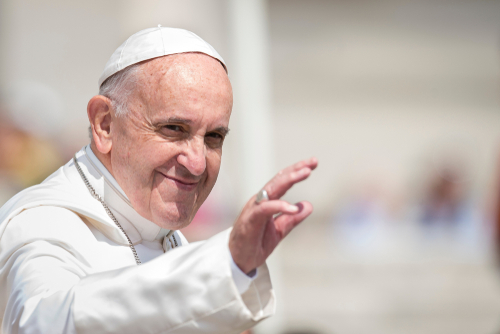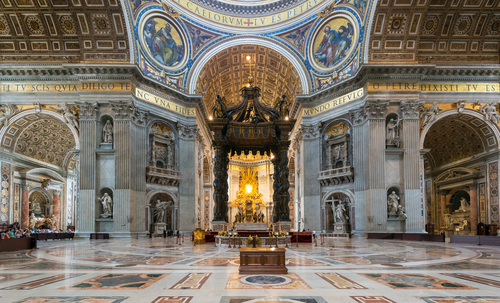
In previous weeks, it is no revelation that Pope Francis has caused controversy on the international scene.
His remarks have enraged Russia, Ukraine, and China in the past month.
So when main Vatican website went offline on Wednesday, it was difficult to tell which of the pope’s adversaries may have been responsible.
The Pope Got Hacked
Whilst Vatican representative originally claimed that the website was experiencing maintenance and experiencing technical issues, he eventually confirmed that the Holy See had indeed been hijacked.
Matteo Bruni issued an announcement late Wednesday stating that technical inquiries are ongoing owing to irregular efforts to get onto the site.
However, these “odd attempts” may be a sign of what’s yet to come. Russia is the primary suspect since it has a record of launching cyberwar on state opponents.
Francis infuriated the Kremlin by calling out Chechen and Buryati forces inside the military group attacking Ukraine, resulting in charges of “race baiting” against the pontiff. The holy hack occurred just twenty-four hours afterward.
Ukraine is enraged that Pope Francis referred to Darya Dugina as an “defenseless” war casualty.
BREAKING: Vatican Website Down Following ‘Suspected Hack’
▪️ The suspected hack came a day after Moscow criticised Pope Francis's latest condemnation of Russia's invasion of Ukraine.https://t.co/qoFf0Nvl9X
— HeadlineHunter!🚨GLOBAL (@HHunter_Global) December 1, 2022
Why Does China Hate the Pope?
China has a beef with the pope because he publicly condemned the nomination of Peng Weizhao as a bishop in the government-sanctioned Chinese Catholic church, which violates a 2018 accord between both the Vatican and China requiring papal permission for such appointments.
Rather, the Holy See released a powerful statement expressing “shock and sadness” at the announcement and stating that the new bishop is not acknowledged by the Holy See.
The claim made over the weekend continued to say that the Holy See expects that similar incidents will not reoccur, anticipates appropriate statements on the topic from the officials, and confirms its full desire to continue thoughtful conversation on all matters of mutual interest.
The Vatican's official website has been knocked offline in a suspected cyber attack, just days after Pope Francis was criticised by Moscow for his latest condemnation of Russia's invasion of Ukraine https://t.co/8hc2MK9evb
— The Telegraph (@Telegraph) December 1, 2022
China has a history of causing disruptions at the Vatican. In 2020, the American company Recorded Future discovered that Chinese government-affiliated hackers had successfully penetrated the Holy See’s email infrastructure.
Allegedly, they also hacked into the Catholic Diocese of Hong Kong, whose views on Catholicism in the region have typically aligned with those of the Vatican. This intrusion went unpunished, but it prompted the Holy See to strengthen its cybersecurity.
It is today one of the most technologically advanced portals in Italy, with highly compensated specialists and multilingual content creators working 24 hours a day to attend to the digital flock.
Top Suspects: Russia and China
However, international powers aren’t the only noteworthy suspects.
There is considerable animosity inside the Vatican’s walled walls, and some fear that the hacker may have sprung from the inside. A continuing criminal trial against Cardinal Angelo Becciu and nine others for financial misconduct, including an amount of money paid to liberate an abducted nun in Mali, is getting hot, and a covertly recorded phone conversation between Cardinal Angelo Becciu and Pope Francis has Vatican ears buzzing.
















